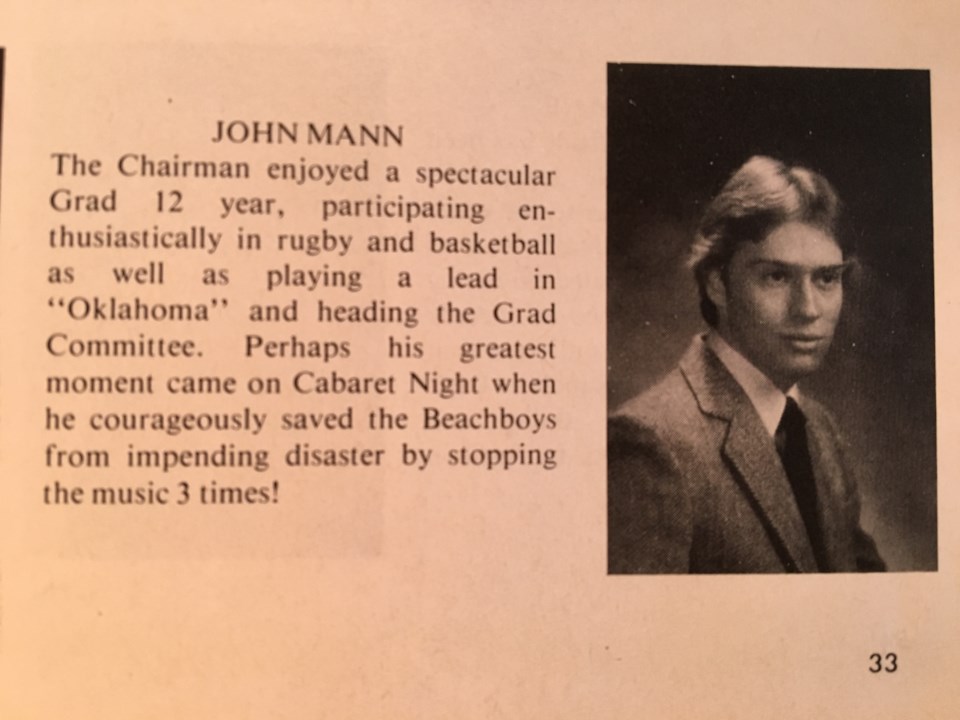It all began one afternoon on the shores of Ambleside,
We were sittin' there quite peacefully with the rising of the tide;
When an idea it came to mind for to usher in the fall,
And we all agreed next Friday night we'd go out on the crawl.
— “The Crawl” by Spirit of the West, 1985.
Last week, when it was announced that the great and beloved John Mann passed away from the effects of early-onset Alzheimer’s at age 57, the Canadian arts and culture community went into a collective state of mourning.
Remembrances poured forth like open taps of Guinness from coast to coast. Mann the musician, the actor, the activist, the father and the husband was a hero to countless Canadians, including me.
I was lucky enough to attend the same high school as Mann. Even though we didn’t walk the halls of Hillside secondary at the same time — Mann graduated in 1980, I graduated in 1989 — it could be argued that even back then, his artistic aftershocks were felt for generations.
When I entered the halls of the now-demolished Hillside secondary at 2295 Queens Ave. on the mountainside of West Vancouver, I was a pimple-faced 12-year-old anxiety case. Mann had been out of high school for a couple of years, but his legend loomed large.
Even then, he was considered a Renaissance man(n) of sorts.
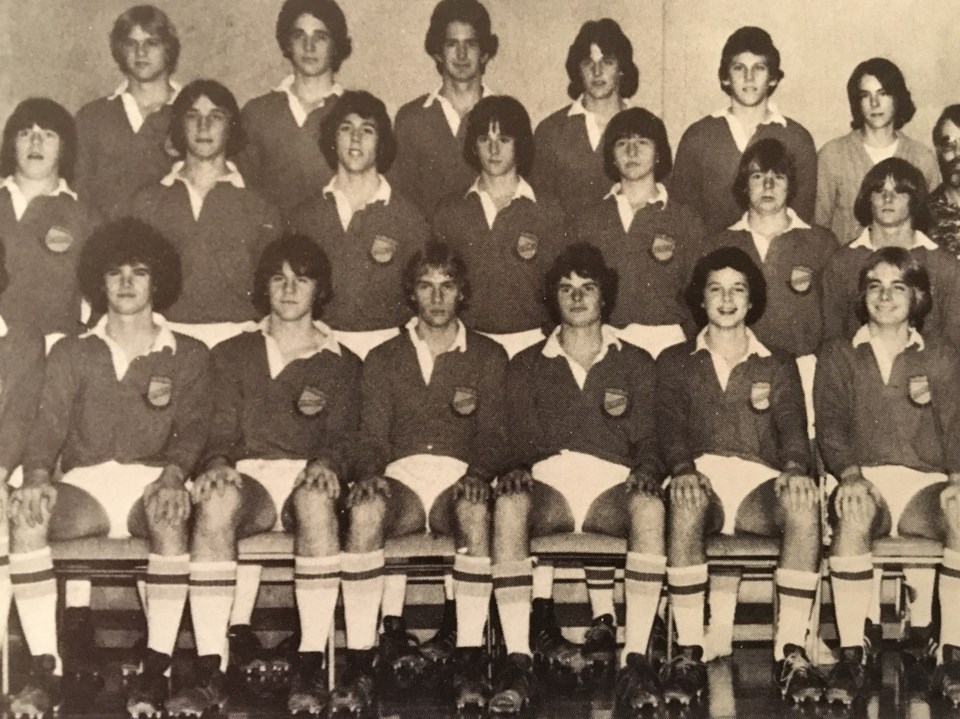
In his graduating year, he played on both the senior boys' rugby and basketball teams, served as chairman of the grad committee and, most notably, emerged as an untouchable musical theatre star — the person everyone who ever entered the Hillside drama program would be measured against.
In 1980, he starred in Hillside’s yearly theatre production opposite Mike Killeen, now one of my colleagues at CBC Vancouver, where Killeen anchors the suppertime TV newscast.
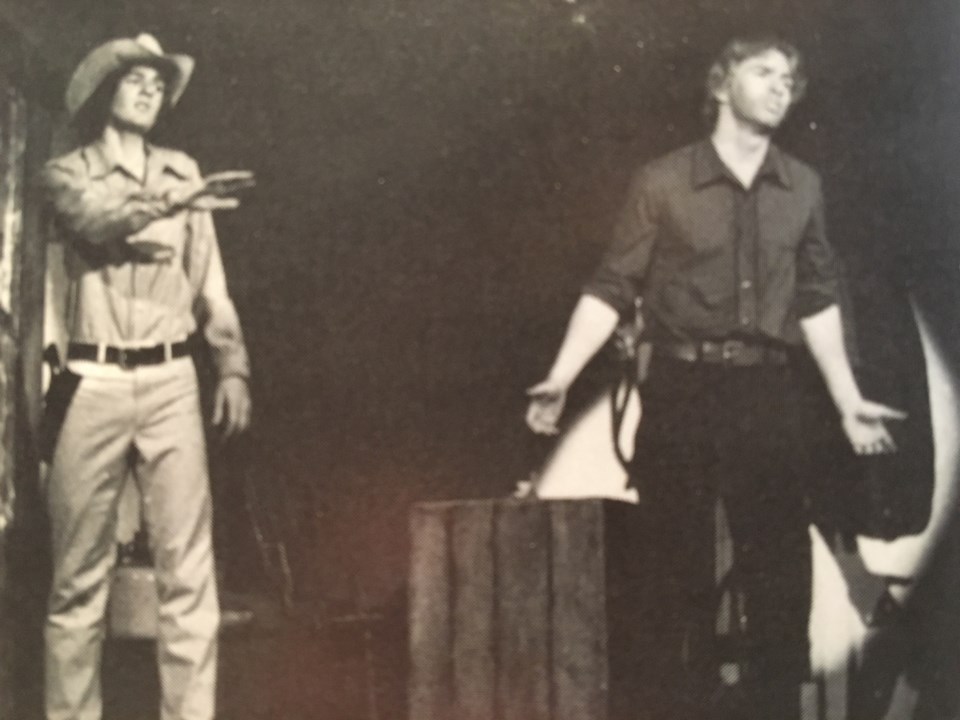
“John was a standout in our drama class,” remembered Killeen. “We were in the musical Oklahoma together, directed by Bill Elliott. I was Curly, John was Jud Fry, and so we sang the duet ‘Poor Jud’ together. Well… John sang. What a voice. He was such a tireless and remarkable performer and, above all, a wonderful person. We will all miss him so much.”
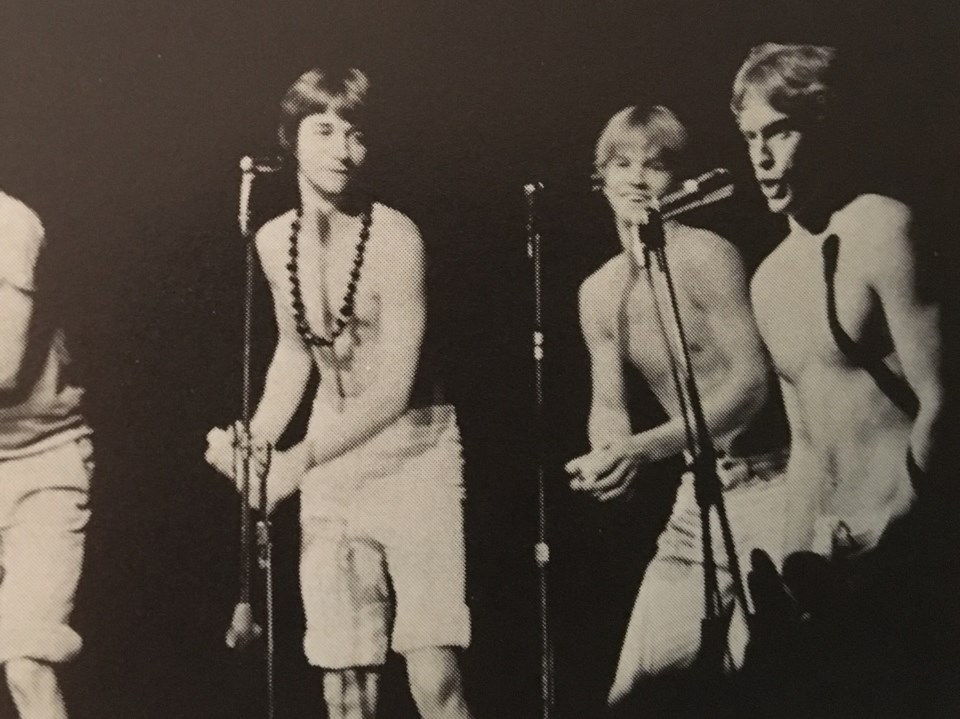
It was drama teacher Bill Elliott who was one of the first to realize the volcanic talent bubbling within Mann. Elliott mentored Mann with his singing and acting, and taught him how to project that mighty voice to the back of the gymnasium-turned-theatre without a microphone — all traits we would see come together in one unstoppable force later on in Spirit of the West’s unmatched live shows.
“Many of us were fortunate to have John as a classmate,” Nigel Bennett told me. Bennett is another Hillside grad who is now an environmentalist and author. Bennett credits Mann with opening up the suburban school to the insurgent sounds from across the bridge in downtown Vancouver.
“John was instrumental in so many ways by bringing life-changing music to our ears even before forming Spirit of the West,” Bennett said. “During high school, John brought in cutting edge bands like the Skulls [featuring a young Joey ‘Shithead’ Keithley], and Art Bergmann’s the Young Canadians to perform at lunch hour mini-concerts.” Other bands that performed at Hillside in 1980 included Doug and the Slugs, the Modernettes and the Subhumans.
A few years after Mann graduated, a very curious and energized student named John Ruskin enrolled at Hillside. He would eventually become the famous interviewer Nardwuar the Human Serviette. Ruskin followed the school’s tradition of booking live, alternative bands such as Grapes of Wrath, the Villains, the Enigmas and Art Bergmann’s new band, Poisoned.
“I noticed that the Young Canadians thanked Hillside secondary school in the liner notes of their 1980 This Is Your Life EP,” Nardwuar said. “I was shocked! Being the president of student council I decided they would be a great band for the first dance of the year. Those liner notes inspired me to do my first-ever interview! So, on Sept. 26, 1985, I did it!”
The sheer volume of live, original music that played Hillside dances in the 1980s had a profound impact on many students who formed their own bands, including Nardwuar’s the Evaporators, She Stole My Beer, the Grames Brothers, the Hip Waiders, On the Go (featuring John Collins of the New Pornographers), Big Yellow Taxi, Memory Day, Distant Myth, the Adam Woodall Band, and Fourth Floor, a Hillside band that put out their own record when they were in grade 11. I co-founded the Smugglers at Hillside in 1988.
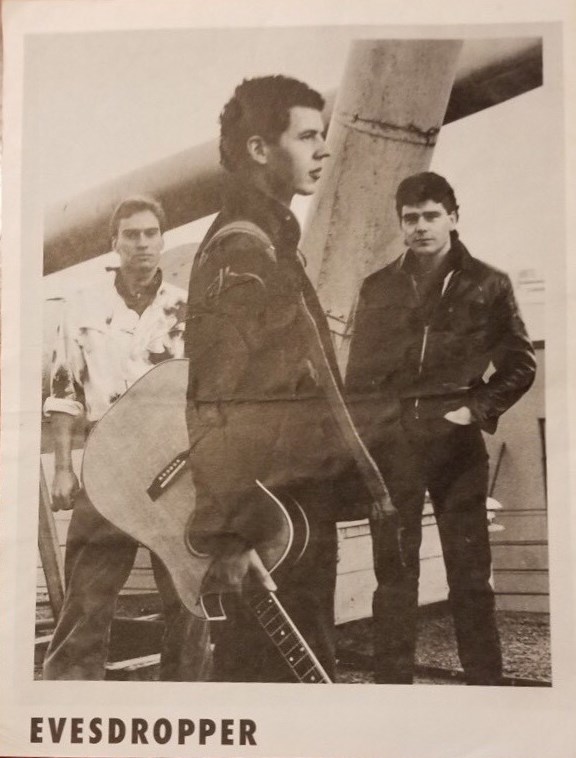
Meanwhile, in the early 1980s, Mann had formed an alt-folk band called Evesdropper with an Argyle secondary grad from Lynn Valley named Geoffrey Kelly. Their first gigs were in places such as the Squarerigger Pub in West Van, the newly opened Whistler Square and the soon-to-be-closing Soft Rock Café.
“They did something I wouldn't have thought could happen,” recalled Andrew Hillhouse, another Hillside grad and member of the band Mad Pudding. “I found myself in the Soft Rock Café and Evesdropper had kids dancing and singing along with songs that had jig and reel breaks instead of guitar solos, songs that spoke of current topical issues in the tradition of the best folk revival.”
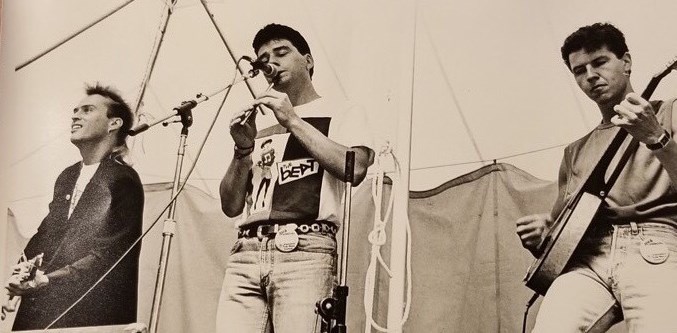
A few years later, the band changed its name to Spirit of the West. I was a friend of Mann’s younger brother Rob at the time. Rob gave me a cassette of the band’s album Tripping Up The Stairs. I distinctly remember rewinding the tape, over and over again, specifically on track five, a Geoffrey Kelly-penned song called “The Crawl.” I put my ear down to the speaker to make sure I was hearing the lyrics correctly:
“Park Royal Hotel, The Rusty Gull, Squarerigger and Queen's Cross,
We'd started out with eight good boys but half had gotten lost;
And you'll never keep the lads together when their eyes begin to rove,
And there was just the three of us that made it to Deep Cove.”
This time it was my turn to be shocked. Was this band writing about my town, my North Shore, the place where I grew up? Lifting my head from the speaker, it dawned on me that if they could do it, I could do it, too. Ever since, I have been writing about where I come from, for better or worse. (As a side note, amazingly, besides the Park Royal Hotel, every North Shore pub immortalized in “The Crawl” — from the Troller to the Raven — is still in operation some 35 years later.) But Mann and Spirit’s influence was not relegated to the North Shore, or the West Coast.
“Spirit of the West played instruments that we recognized,” said Alan Doyle of St. John’s, Newfoundland band Great Big Sea on the CBC last week. “We never saw anyone present folk music the way John could present and front folk music. It really gave us an appreciation about our own backyard and not being tempted to write songs about the beach in California or something. We learned very quickly from Spirit of the West that we could be ourselves and people would love us for it.”
After an incredible career and long and courageous battles with both cancer and Alzheimer’s, John Mann is finally and forever home for a rest. We’ll never forget him.
